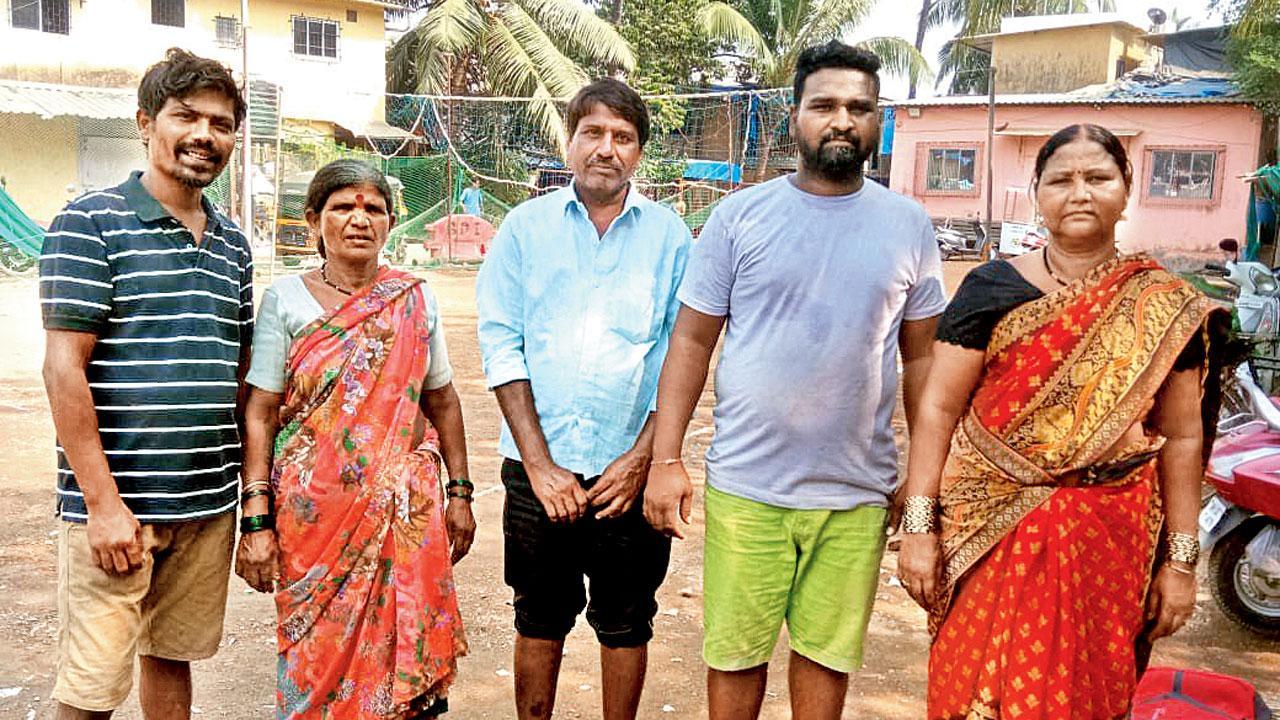

Home / Mumbai / Mumbai News / Article /
Mumbai: Rs 200 Diwali bonus irks low-paid cleaning workers
Updated On: 16 November, 2023 06:30 AM IST | Mumbai | Vinod Kumar Menon
While city-based NGO Watchdog Foundation has raised the issue with the state govt, civic officials point out BMC’s current cleanliness scheme considers their work as a ‘voluntary service’ which is not entitled to legal benefits

Savita Shinde (extreme right) with her son, Sushil, (2nd from right), along with fellow cleanliness workers. The mother-son duo have been doing cleanliness work in the Sahar village slums for the past 15 years
Contractual cleanliness workers in the Sahar Village in K East ward, working under the civic body’s Swachha Mumbai Prabodhan Abhiyan (SMPA), recently received a Diwali bonus of R200 per head. Irked by the paltry bonus, coupled with low monthly pay, and the workers’ abysmal working conditions, a local NGO wrote to the Maharashtra State Human Rights Commission (MSHRC) and Chief Minister Eknath Shinde. However, considering the SMPA’s design, the workers may not even have the legal recourse demanded by the NGO under prevailing labour laws.
The cleanliness workers are known as Dattak Vasti workers, a title derived from the erstwhile Dattak Vasta Yojana (Slum Adoption Scheme) of 2001. It was replaced by the SMPA in 2015. In a November 14 complaint submitted over email, the trustees of Watchdog Foundation raised the issue of low pay of R6,000. “Such meagre compensation is not only unjust but also fails to acknowledge the pivotal role these individuals play in maintaining the cleanliness and hygiene of our city,” the complaint reads.



